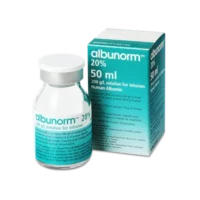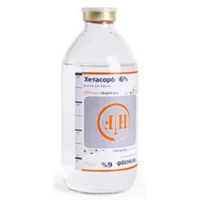Description
Reamberin (meglumine sodium succinate) Solution for Infusions 400 ml Vial
Ingredients
- Reamberin solution for infusions contains meglumine sodium succinate as the active ingredient.
Dosage
- The recommended dosage of Reamberin solution for infusions is determined by the healthcare provider based on the patient’s condition and needs.
Indications
- Reamberin solution for infusions is indicated for use in conditions where metabolic disorders and acid-base balance disturbances are present.
Contraindications
- Do not use Reamberin solution for infusions in patients with known hypersensitivity to any of the ingredients.
Directions
- Reamberin solution for infusions should be administered intravenously as directed by a healthcare professional.
Scientific Evidence
- Studies have shown that meglumine sodium succinate in Reamberin solution for infusions can help in the correction of metabolic acidosis and improve cellular metabolism.
Additional Information
- It is important to monitor electrolyte levels and renal function during treatment with Reamberin solution for infusions.
Pharmacological Effects: Reamberin acts as a metabolic corrector by improving cellular energy metabolism and reducing oxidative stress. It helps in restoring the acid-base balance in the body, especially in conditions of metabolic acidosis.
Clinical Trials: Clinical trials have demonstrated the efficacy of Reamberin in improving the outcomes of patients with metabolic disorders. A study by Kirov et al. (2018) showed a significant improvement in organ function and survival rates in critically ill patients treated with Reamberin.




